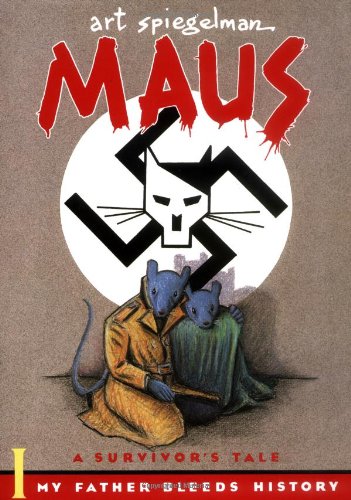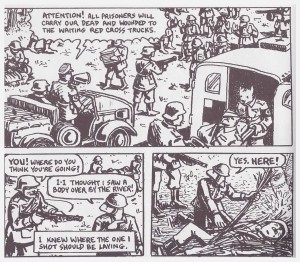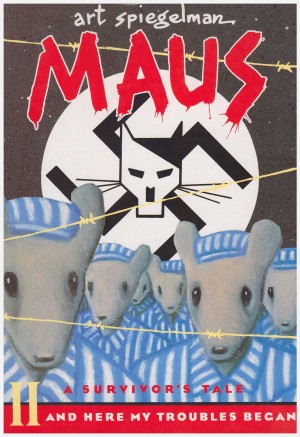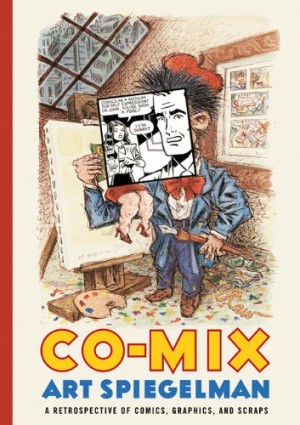Review by Frank Plowright
Maus has for so long been the gold standard of graphic novels that it’s now a rare person who actually recalls that it was originally published as two separate volumes in book form, with this opener originally just subtitled A Survivor’s Tale. It was only when the concluding portion was released in 1991 that the secondary subtitle of was added.
There are two contrasting narratives to Maus, that of creator Art Spiegelman detailing his relationship with his father Vladek, bookending each chapter, and those of Vladek’s life prior to and during World War II in Europe. This volume takes the story to Vladek’s arrival at Auschwitz.
As the book opens it’s been a considerable while since Spiegelman has visited his father. The family surname translates from German as ‘Mirrorman’, and he supplies an unsparing reflection of himself, portraying an essentially selfish bridge-building exercise with Vladek in order to tease his story from him. On the other hand, time accentuates this element. When Spiegelman began, there was barely a market for graphic novels, and while he was aware of his father’s experiences being narrative dynamite, there was no way, in the early 1980s, that he could have foreseen the acclaim and financial success Maus would bring.
It’s interesting that Spigelman displays a greater honesty toward his readership than his father, depicting the conversation in which he promises not to divulge reminiscences just imparted, immediately after having done just that.
History informs that far worse was due, but Vladek’s experiences are distressing enough in 1939, living in Poland occupied by Nazis already set on their genocidal course. There are moments of compassion, luck and joy here as well, though. The reputation of Maus is based on Vladek’s horrific experiences of persecution and deprivation, yet its quality is determined by the remainder. Without any reference to his what he endured during wartime, Vladek is a compulsive study. In the present day he’s contrary, miserly, and generally very difficult to be around, and the way he chose his future wife in the 1930s was astonishingly cold-hearted. She also survived the concentration camps, but suffered lifelong depression and committed suicide in the 1960s. Spiegelman’s earliest autobiographical strip was about this, and is also reprinted here, re-contextualised as Vladek has now read it years after it was created.
Vladek destroyed his wife’s diaries, now coveted by Spiegelman for his project, and the twin crises ending this opening volume are Vladek’s story reaching Auschwitz, and his son castigating him in the present day for destroying the diaries. Even more harrowing recollections form the second volume And Here My Troubles Began, but both are now collected as The Complete Maus.





